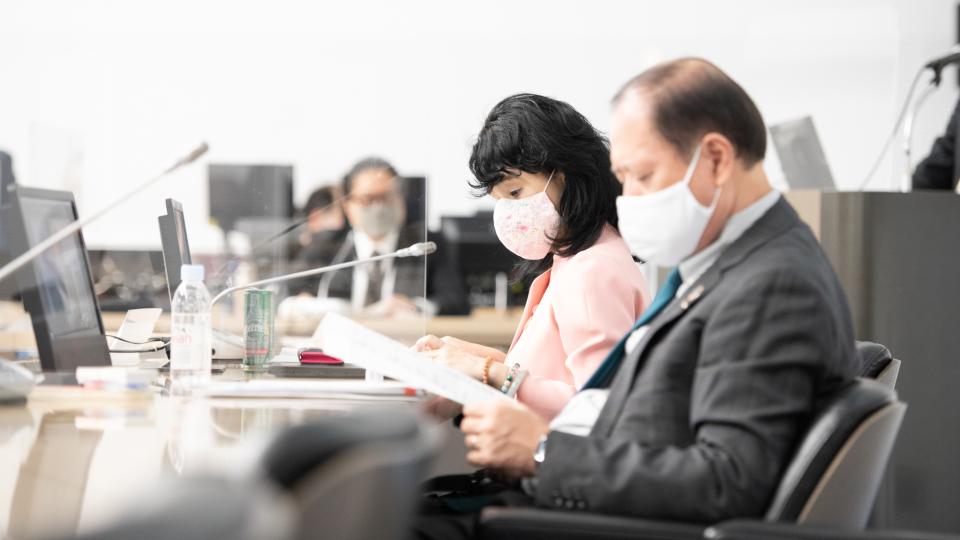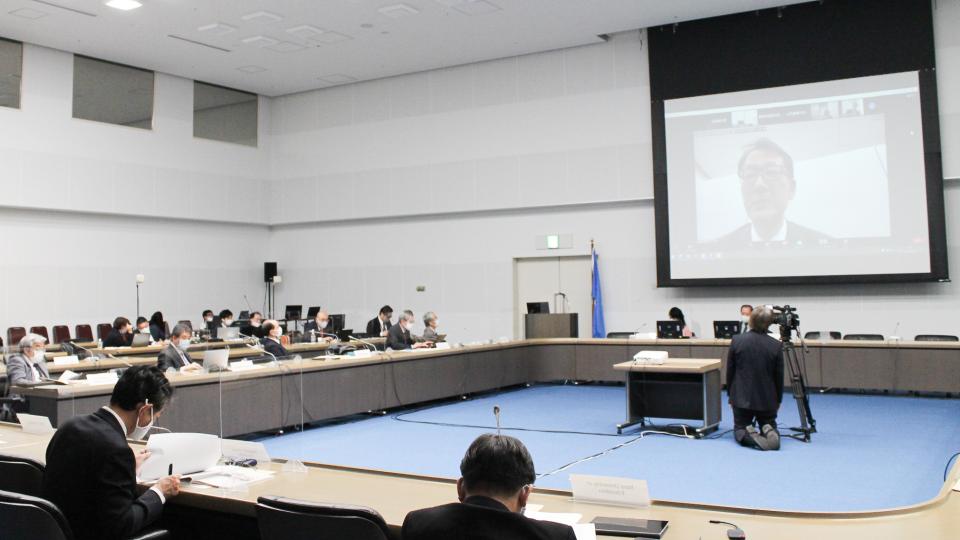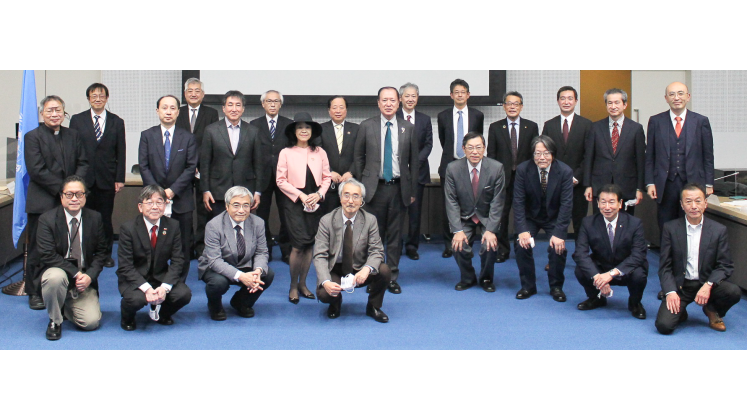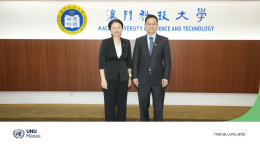On 30 October 2020, UNU-IAS organised an inaugural workshop for the UNU SDG–University Platform (SDG-UP), with virtual and limited in-person participants. A total of 20 representatives from 29 participating universities from Japan visited the workshop venue at UNU, and 52 representatives and university officials participated via Zoom. Following the welcome and keynote speeches, representatives from each university introduced themselves and then lively discussions were held in groups.

During the opening remarks, Shinobu Yume Yamaguchi (Director, UNU-IAS), highlighted that in responding to the spread of the unprecedented new coronavirus infection, there are great expectations on the role of universities as a cornerstone for nurturing the next generation and supporting regional revitalisation. She discussed that even though knowledge and awareness of the SDGs among Japanese students has increased in recent years, on a global scale activities relating to SDGs at Japanese universities was still relatively low. As a result of this, she emphasised that future requirements for universities should be to improve unique contributions of each university and to develop strategic partnerships in order to increase communication and cooperation.
There are high hopes for the SDG-UP in terms of fostering stronger collaboration of Japanese universities on the SDGs as a means to benefit socio-economic and environmental capacities. She further stressed that we must be solution-oriented by sharing common challenges and best practices for overcoming them. She also illustrated future prospects for strategic information dissemination by mobilising the global network of UNU, creating portal sites for information sharing, and driving evaluation for improvement of the platform.
Shunichi Murata (Professor, School of Policy Studies, Kwansei Gakuin University) was invited to give the keynote speech on the "Transition of the Development Paradigm and SDGs: Promotion of Multilateral Cooperation and Challenges of Academia", based on his extensive experience as a UNDP Representative, particularly with regard to formulating rules for the SDGs. He described the principles and mechanisms of drafting SDGs, a historical transition of development approaches, and future issues and stressed that the three basic principles of the SDGs are human rights, equality and sustainability and stated that for eradicating poverty, and that we must keep these in mind when pursuing development work, particularly as this must not fall on future generations to address. He emphasised that aiming to achieve the 17 goals, four areas of environment, economic growth, society, and governance need to be integrated in a well-balanced manner, as an essence of the SDGs is to encourage a collaboration among existing organisations beyond the boundaries that eventually leads to sustainable social change. Shunichi Murata also introduced his experience at UNDP when he was involved in the production of the Human Development Report, the basis of the Millennium Development Goals (MDGs), emphasising that scholars from developing countries played a central role for its production and that the development approach was highly successful in formulating the report. He concluded that an important role of the platform is to build an environment where universities can cooperate with each other both in Japan and overseas, and it is important to make concrete plans in the future to realise it.
Eri Hata (Deputy Director, International Affairs Division, Minister’s Secretariat, MEXT) discussed how the roles of universities will become increasingly important in the future as a means to develop human resource capacity to address challenges and make meaningful contributions to society She expressed her gratitude to the organisers of this platform and looked forward to furthering collaboration between UNU and Japanese universities.

Concluding this inaugural workshop, Shunichi Murata stressed that it is important to help nurture the future generations of leaders, especially those pursuing higher education, and looked forward to developing new curricula with participating universities.
29 participating universities (in alphabetical order)
Aoyama Gakuin University
Chiba University of Commerce
Ehime University
Hiroshima University
Hokkaido University
International Christian University
International University of Japan
Kanagawa University
Kanazawa University
Kwanseigakuin University
Keio Gijuku University
Kitakyushu City University
Kyushu Sangyo University
Notre Dame Seishin University
Nara University of Education
Ochanomizu Women's University
Osaka University
Osaka Medical and Pharmaceutical University
Ryukoku University
Soka University
Sophia University
Tokai University
Tokyo City University
Tokyo Institute of Technology
Tokyo University of Foreign Studies
Tokyo University of Science
Toyo University
Tsukuba University
University of Tokyo





